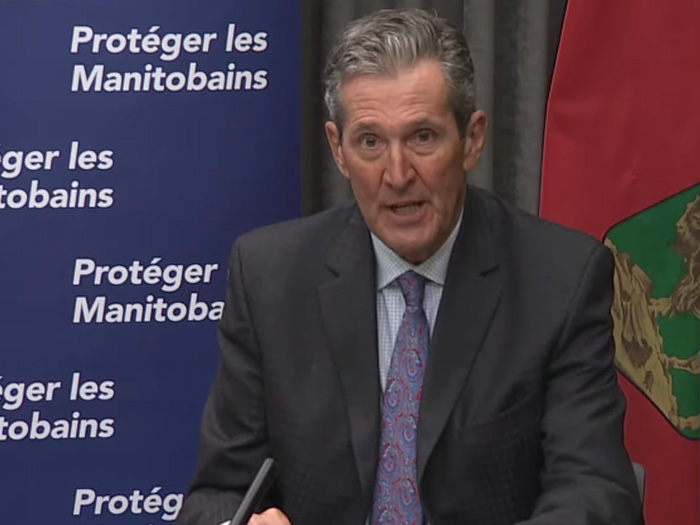When the Morden super site opens on March 22, COVID-19 vaccine providers will be piloting a new process that is easier and more comfortable for patients, while also significantly increasing the number of vaccines that can be provided in a day.
“I want to commend our Vaccine Implementation Task Force for its continued efforts to build a flexible vaccine roll-out plan that is focused on providing life-saving vaccines to as many Manitobans as quickly and safely as possible,” said Premier Brian Pallister. “The pilot will test a new model that aims to provide better patient care, which is especially important for vulnerable Manitobans accessing these sites, as it can be a difficult and overwhelming process.”
Currently, people visiting a super site to be immunized walk from the registration desk to a waiting area, to the immunization room and finally to a post-immunization observation area. The immunizer is responsible for reconstituting the vaccine and drawing it into the needle, delivering the vaccine and checking and updating a client’s immunization records. With these additional responsibilities, immunizers are able to provide six to eight immunizations per hour.
In the new process, people will enter the site, register and be escorted to a station, where a staff member will come to them to review their consent form. Some staff will be assigned to reconstitute and fill the needles with vaccine to accelerate the process, while other staff members will focus on checking and updating immunization records.
Immunizers will move from client to client with a cart of supplies, meaning they are able to focus on immunizing. This is expected to vastly increase the number of immunizations they can complete in an hour, but the overall effect of this change is part of what will be evaluated in the pilot project.
The new model also significantly improves client experience as they stay in one place, with clinic staff coming to them. This is especially beneficial for people with mobility or other accessibility needs. The total time each person spends in the clinic is also expected to decrease, on average to 25 minutes from 45 minutes. This includes a required 15-minute, post-immunization recovery period.
“We have learned from the success of our Focused Immunization Teams and from other jurisdictions to develop this model,” said Health and Seniors Care Minister Heather Stefanson. “They divide up different tasks to make things run more quickly and efficiently, particularly when FIT members visited each patient in their room at personal care homes and other congregate living facilities. The goal is to expand that success on a larger scale. This will allow for more rapid turnover between clients and less waiting, which will allow us to immunize more people every day and get the vaccine to more Manitobans sooner.”
The premier noted the approach will also be tested at the RBC Convention Centre super site in Winnipeg beginning this week. It was inspired by the ‘hockey hub’ model used in part of Ontario and adapted to reflect Manitoba’s experiences with Focused Immunization Teams and the immunization effort here to date.
“The more vaccine we deliver, the more we learn how to improve our processes and ramp up delivery, just as vaccine delivery is poised to ramp up from the federal government,” said Pallister. “We will continue to learn from our experiences and best practices from across the country to increase our capacity to deliver life-saving vaccines and protect Manitobans from COVID-19.”
For more information on Manitoba’s COVID-19 vaccine program, to review the eligibility criteria or to book an appointment online, visit protectmb.ca.





